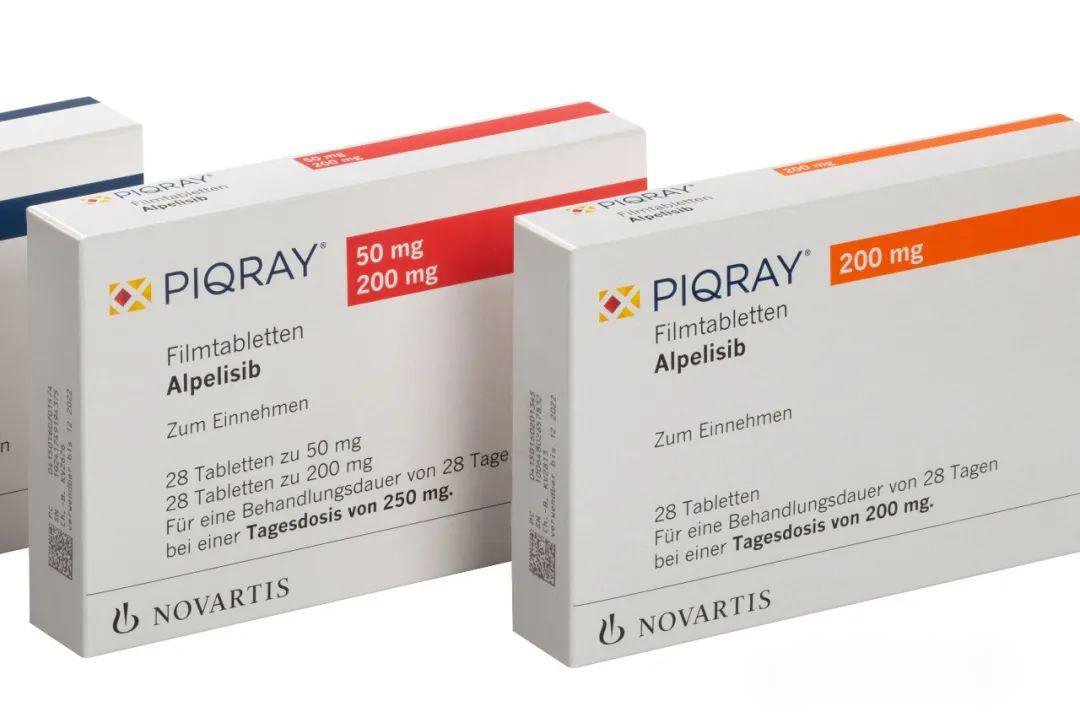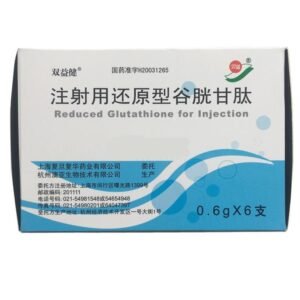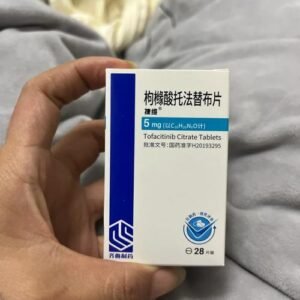PIQRAY ALPELISIB阿博利布
Apellis indications: It is indicated for the treatment of postmenopausal women and men with hormone receptor (HR) positive, human epidermal growth factor receptor 2 (HER2) negative, PIK3CA mutation, advanced or metastatic breast cancer in combination with fulvestrant, after progression on endocrine-based therapy or after detection by FDA-approved testing.
Dosage and administration of Apellis:
1. The recommended dose in the instructions is 300 mg orally once daily, taken after meals, at the same time each day. Administer until intolerance or resistance.
2. In combination with fulvestrant, the recommended dose of fulvestrant is 500 mg on days 1, 15 and 29, and once a month thereafter.
Apellis dose adjustment:
Starting dose 300 mg once daily
First reduction 250 mg once daily
Second reduction 200 mg once daily
1. Pancreatitis is only allowed to reduce the dose once.
2. If the 200 mg dose cannot be tolerated, stop Apellis treatment.
Swallow PIQRAY apellis tablets whole (tablets should not be chewed, crushed, or split before swallowing). If the tablet is broken, split, or otherwise incomplete, it should not be ingested.
If a dose of PIQRAY apellis is missed, take it with food within 9 hours of the usual time to take it. More than 9 hours later, skip the dose for that day. The next day, take PIQRAY at the usual time.
If the patient vomits after taking that dose, advise the patient not to take an additional dose that day and to resume the dosing schedule at the usual time the next day.
Mechanism of action: Alpelisib is a phosphatidylinositol-3 kinase (PI3K) inhibitor that can inhibit the activity of PI3Kα (PIK3CA). It is a drug for advanced breast cancer with HR+/HER2- and PIK3CA mutations. 49.3% of HR+/HER2- breast cancer patients have PIK3CA mutations. Alpelisib has shown the ability to inhibit the PI3K pathway in breast cancer cell lines carrying PIK3CA gene mutations and has the effect of inhibiting cell proliferation.
Adverse reactions (side effects) of alpelisib: The most common adverse reactions (including laboratory abnormalities) (incidence ≥ 20%) are increased blood glucose, increased creatinine, diarrhea, rash, decreased lymphocyte count, increased GGT, nausea, increased ALT, fatigue, decreased hemoglobin, increased lipase, decreased appetite, stomatitis, vomiting, weight loss, decreased calcium, decreased blood glucose, prolonged APTT and hair loss.
Overdose: There is limited experience with overdose of PIQRAY alpelisib in clinical trials. In clinical studies, PIQRAY was administered at a dose up to 450 mg once daily.
In cases of accidental overdose of PIQRAY apellis reported in clinical studies, adverse reactions associated with overdose were consistent with the known safety profile of PIQRAY and included hyperglycemia, nausea, fatigue, and rash.
Initiate general symptomatic and supportive measures for all overdose cases, if necessary. There is currently no known antidote for PIQRAY apellis.
Precautions for apellis:
1. Severe hypersensitivity reactions: Permanently discontinue apellis and administer appropriate treatment.
2. Severe skin reactions: Cases of severe skin reactions, including Stevens-Johnson syndrome (SJS) and erythema multiforme (EM), have been reported. Do not initiate treatment with this drug in patients with a history of SJS, EM, or toxic epidermal necrolysis (TEN). If signs or symptoms of severe skin reactions are present, interrupt apellis until the cause is determined. Consider consultation with a dermatologist and permanently discontinue apellis if SJS, EM, or TEN is confirmed.
3. Hyperglycemia: Severe hyperglycemia, including ketoacidosis, has been reported. The safety of apellis in patients with type 1 or uncontrolled type 2 diabetes has not been established. Before starting treatment with apellis, test fasting plasma glucose (FPG), HbA1c, and optimize glycemic control. After starting treatment, monitor regularly. Use or optimize hypoglycemic medications as clinically needed. If severe hyperglycemia occurs, suspend or reduce the dose or discontinue apellis.
4. Pneumonia: Cases of severe pneumonia and interstitial lung disease have been reported. Monitor clinical symptoms or imaging changes. Suspend or discontinue apellis if severe pneumonia occurs.
5. Diarrhea: Severe diarrhea cases (including dehydration and acute kidney injury) have been reported. Most patients treated with apellis will experience diarrhea (≤Grade 2). Patients are advised to start antidiarrheal treatment, rehydrate, and inform professional healthcare professionals if diarrhea occurs. If severe diarrhea occurs, suspend, reduce the dose, or discontinue apellis.
5. Embryo-fetal toxicity: Apellis can cause fetal harm.
Share:
Products
Our offers
Health Classification
Let us work together to protect precious health




























